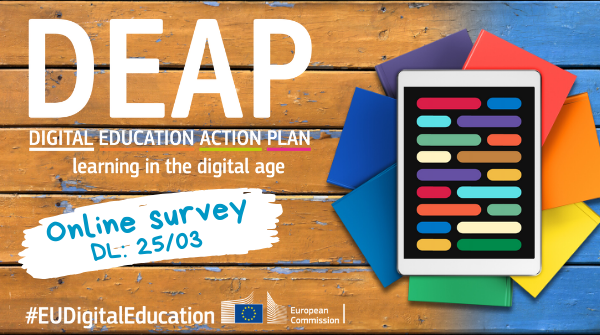
The EU’s “Digital Education Action Plan” is currently being updated to address the growing global skills challenge
by Pisana Ferrari – cApStAn Ambassador to the Global Village
The 2018 “Digital Education Action Plan” is the last in a long series of initiatives taken by the EU in the field of digital education. It warns of the persistent divide between and within EU Member States, in particular regarding digital infrastructure and skills, all of which, it says, hinders inclusive growth. It refers to how vulnerable groups are particularly affected by this situation and expresses concern over the lack of interest among girls to pursue studies in ICT and STEM. This can be leading to lost social and economic opportunities and risks reinforcing gender inequality. The Plan includes eleven actions to support technology use and the development of digital competences in education, in three priority areas: making better use of digital technology for teaching and learning; developing digital competences and skills; improving education through better data analysis and foresight. The Plan’s revision is open for public consultation, via an online survey. The deadline is March 25.

The revision of the Digital Education Action Plan was mentioned in the EU “White Paper on AI”, approved in February 2020. The White Paper addresses the opportunities and challenges of AI and presents policy options “to enable a trustworthy and secure development of AI in Europe, in full respect of the values and rights of EU citizens”. In the section called “Action 3”, the White Paper stresses the fact that a European approach to AI needs to be underpinned by a strong focus on developing the skills necessary to work in AI and upskilling of the workforce to become fit for the AI-led transformation. The White Paper says the revised Digital Education Plan will help make better use of data and AI-based technologies, such as learning and predictive analytics, with the aim to improve education and training systems and make them fit for the digital age. It will also increase awareness of AI at all levels of education in order to prepare citizens for informed decisions that will be increasingly affected by AI.
Sources
- Online survey for the revision of the EU “Digital Education Action Plan”
- EU “Digital Education Action Plan”, January 17, 2018, SWD(2018) 12 final
- EU “White Paper on Artificial Intelligence” – A European approach to excellence and trust”, February 19, 2020, COM(2020) 65 final